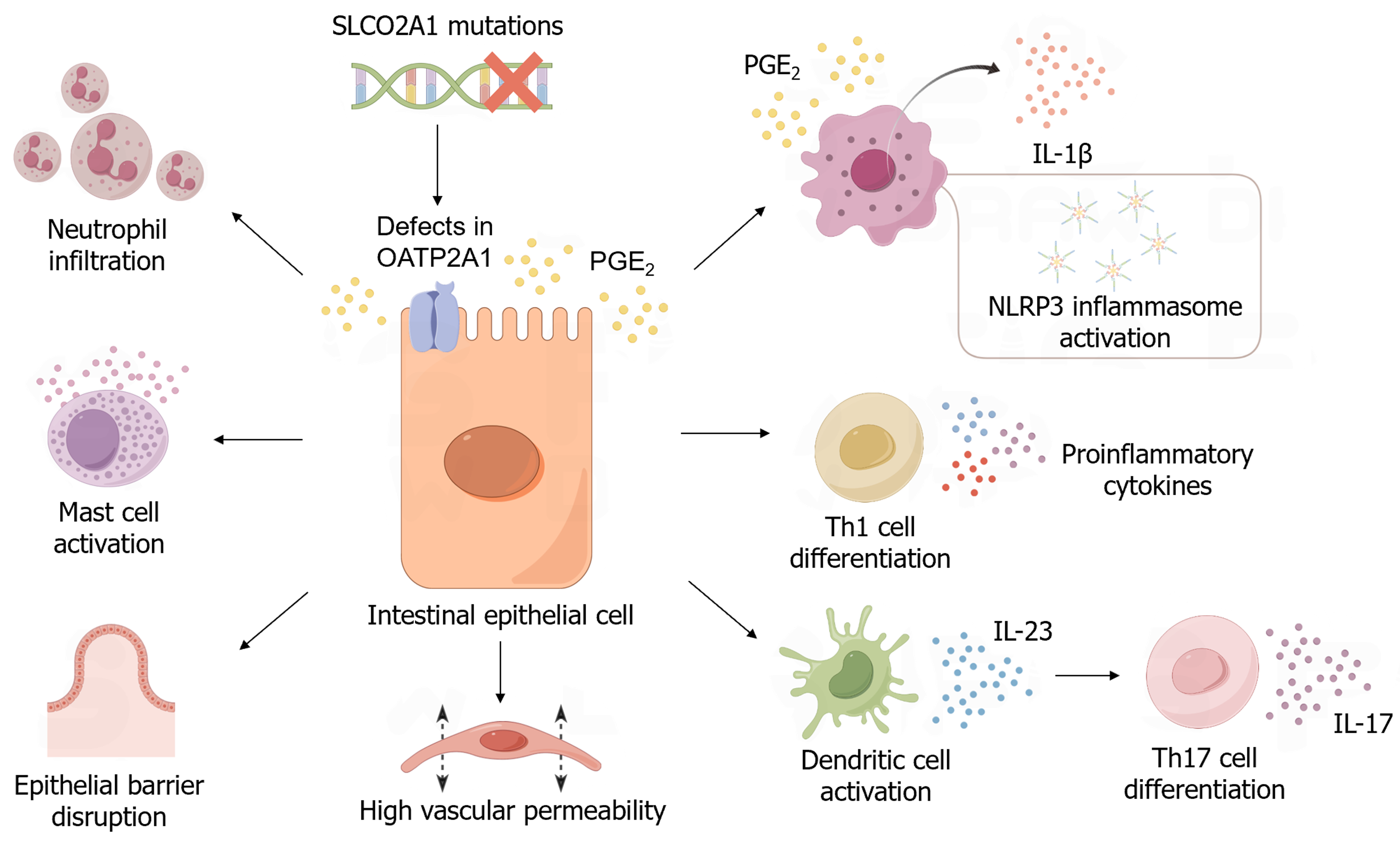Copyright
©The Author(s) 2024.
World J Gastroenterol. May 21, 2024; 30(19): 2505-2511
Published online May 21, 2024. doi: 10.3748/wjg.v30.i19.2505
Published online May 21, 2024. doi: 10.3748/wjg.v30.i19.2505
Figure 1 The potential pathogenesis of chronic enteropathy associated with the SLCO2A1 gene.
Defects in OATP2A1 caused by SLCO2A1 loss-of-function mutations lead to elevated serum levels of prostaglandin E2 (PGE2). The accumulation of PGE2 causes neutrophil infiltration, mast cell activation, high vascular permeability, and epithelial barrier disruption. It also contributes to the differentiation of type 1 T helper (Th1) cells and Th17 cells that release proinflammatory cytokines. PGE2 activates NOD-like receptor protein 3 inflammasome in macrophages and promotes the release of interleukin-1β, which causes intestinal inflammation. PGE2: Prostaglandin E2; IL: Interleukin; NLRP3: NOD-like receptor protein 3; Th1: Type 1 T helper.
- Citation: Xie ZX, Li Y, Yang AM, Wu D, Wang Q. Pathogenesis of chronic enteropathy associated with the SLCO2A1 gene: Hypotheses and conundrums. World J Gastroenterol 2024; 30(19): 2505-2511
- URL: https://www.wjgnet.com/1007-9327/full/v30/i19/2505.htm
- DOI: https://dx.doi.org/10.3748/wjg.v30.i19.2505









